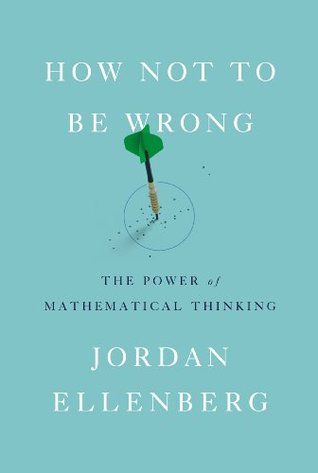More on this book
Community
Kindle Notes & Highlights
Read between
January 10 - January 16, 2019
Bayes’s T...
This highlight has been truncated due to consecutive passage length restrictions.
The posterior is affected by the evidence you encounter, but also by your prior.
In the Bayesian framework, how much you believe something after you see the evidence depends not just on what the evidence shows, but on how much you believed it to begin with.
The neighbor’s presence on the list really does offer some evidence that he’s a potential terrorist. But your prior for that hypothesis
ought to be very small,
because most people aren’t ...
This highlight has been truncated due to consecutive passage length restrictions.
Relying purely on null hypothesis significance testing is a deeply non-Bayesian thing to do—strictly
Bayes’s Theorem,
Bayesian statisticians often don’t think about the null hypothesis at all; rather than asking “Does this new drug have any effect?” they might be more interested in a best guess for a predictive model governing the drug’s effects in various doses on various populations.
probability “measures the ‘degree of rational belief’ to which a proposition is entitled in the light of given evidence.”
Bayes’s Theorem can be seen not as a mere mathematical equation but as a form of numerically flavored advice.
update our beliefs about things in the light of new observations.
2 / π,
“The interest I have to believe a thing is no proof that such a thing exists.”
there are known unknowns and there are unknown
unknowns,
literature, the former kind of unknown is called risk, the latter uncertainty.
Risky strategies can be analyzed numerically;
uncertain strategies, Ellsberg suggested, were beyond th...
This highlight has been truncated due to consecutive passage length restrictions.
mathematical a...
This highlight has been truncated due to consecutive passage length restrictions.
variance, a measure of how widely spread out the possible outcomes of a decision
David Foster Wallace was asked in a 1996 interview about the ending of Infinite Jest, which many people found abrupt: Did he, the interviewer asked,
avoid writing an ending because he “just got tired of writing it”? Wallace replied, rather testily: “There is an ending as far as I’m concerned. Certain kinds of parallel lines are supposed to start converging in such a way that an ‘end’ can be projected by the reader somewhere beyond the right frame. If no such convergence or projection occurred to you,
then the book’s failed...
This highlight has been truncated due to consecutive passage length restrictions.
The geometry of the projective plane is governed by two axioms: Every pair of points is contained in exactly one common
line. Every pair of lines contains exactly one common point.
bête noire
no block of seven bits is within Hamming distance 1 of two different code words.
Hales thinks we have no choice but to start over again, rebuilding the vast corpus of mathematical knowledge
within a formal structure that can be verified by machine.
If the code that checks the formal proofs is itself checkable (and this, Hales convincingly argues, is a feasible goal) then we can free ourselves forevermore from controversies like the one H...
This highlight has been truncated due to consecutive passage length restrictions.
laboring to construct codes random enough to be fast, but structured enough to be decodable.
“prospect theory,” for which Kahneman later won the Nobel Prize, is
the founding document of behavioral economics, which aims to model with the greatest possible fidelity the way people do act,
people tend to place more weight on low-probability events
for most people, opening a business is a bad bet.
for a large proportion of potential entrepreneurs, when you crunch the numbers, the expected financial value, like that of a lottery ticket, is less than zero.
With time, the top performers started to look and behave just like the members of the common mass.
It was built into the nature of competition itself to push down successful businesses and promote their incompetent rivals.
retail trade is over-crowded, shops are small and inefficient, volume of business inadequate, expenses relatively high, and profits small. So
heredity intermingled with chance.
almost any condition in life that involves random fluctuations in time is potentially subject to the regression effect.
the apparently mighty are seldom quite as mighty as they look.
Then the hammer drops. The triumph
mediocrity observed by Secrist, Hotelling points out, is more or less
automatic whenever we study a variable that’s affected by both stable factors and...
This highlight has been truncated due to consecutive passage length restrictions.
regression to the mean,
regression to the mean was in effect whenever the phenomenon being studied was influenced by the play of chance forces.
how strong were those forces, by comparison with the effect of heredity?
our brains are sort of bad at looking at columns of numbers, but absolutely ace at locating patterns and information in a two-dimensional field


